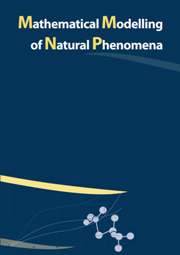Article contents
On the Weak Solutions of the McKendrick Equation: Existence of Demography Cycles
Published online by Cambridge University Press: 15 May 2008
Abstract
We develop the qualitative theory of thesolutions of the McKendrick partial differential equation ofpopulation dynamics. We calculate explicitly the weak solutionsof the McKendrick equation and of the Lotka renewal integralequation with time and age dependent birth rate. Mortality modulusis considered age dependent. We show the existence of demographycycles. For a population with only one reproductive age class,independently of the stability of the weak solutions and after atransient time, the temporal evolution of the number ofindividuals of a population is always modulated by a time periodicfunction. The periodicity of the cycles is equal to the age ofthe reproductive age class, and a population retains the memoryfrom the initial data through the amplitude of oscillations. For apopulation with a continuous distribution of reproductive ageclasses, the amplitude of oscillation is damped. The periodicityof the damped cycles is associated with the age of the firstreproductive age class. Damping increases as the dispersion of thefertility function around the age class with maximal fertilityincreases. In general, the period of the demography cycles isassociated with the time that a species takes to reach thereproductive maturity.
- Type
- Research Article
- Information
- Mathematical Modelling of Natural Phenomena , Volume 1 , Issue 1: Population dynamics , 2006 , pp. 1 - 30
- Copyright
- © EDP Sciences, 2006
- 3
- Cited by


